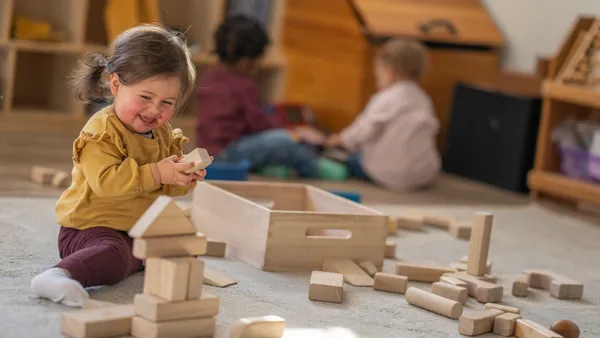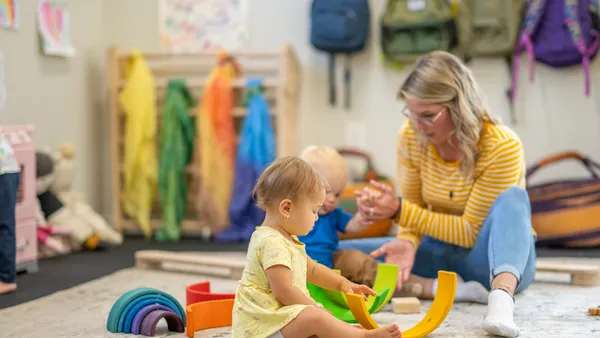Dive Brief:
- New guidance for training and preparing early childhood educators emphasizes equitable classroom practices, including the type of books to recommend, techniques for settling conflicts, and how to talk with families, according to the Council for Professional Recognition, a nonprofit that administers the Child Development Associate credential.
- The latest and third edition of Essentials for Working with Young Children aims to guide early educators in using "the microcosm of the classroom to make a macro impact by giving children a sense of social justice when they are still small."
- A rise in racial and ethnic tensions in recent years led to the council's focus on equity, as well as a shortage of early educators that is particularly impacting communities with high proportions of low-income families and people of color, a Council statement said.
Dive Insight:
The council partnered with the Children's Equity Project on equitable practices for the guidance, which includes strategies to help early educators create safe and healthy learning environments, support children's physical and cognitive development, aid social and emotional growth, and build positive relationships with families.
“The goal for the new Essentials handbook is to guide teachers in helping young children master skills, develop friendships, grow in independence and move to new levels of thinking and understanding about the world,” said Calvin Moore Jr., council CEO, in a statement. “The result is a curriculum to help build a model world based on tolerance and inclusion.”
The rise in racial and ethnic tensions points "to the need to teach tolerance when young minds are most open," the council said.
Efforts to update the handbook were supported by a grant from the Trust for Learning's Supporting Equitable Educator Development Fund, which provided $420,000 to nine partners to boost a more inclusive, equitable and sustainable early learning workforce. The Trust for Learning is a nonprofit that advocates for the expansion of ideal learning environments in early education.
Like K-12 schools, child care and preschools are suffering from staff shortages. The child care sector lost 80,000 jobs, or about 7.5% of its workforce, during the pandemic, according to the U.S. Department of Health and Human Services.
A survey published last fall by Teaching Strategies, an early education resource provider, said 45% of early childhood educators are experiencing mental health challenges and burnout. The survey also revealed early childhood educators who had access to professional development were more likely to be satisfied with their jobs.
The council credentialed more than 39,000 early educators in 2022 and has awarded nearly 1 million credentials since 1976, a 2022 council report said.












